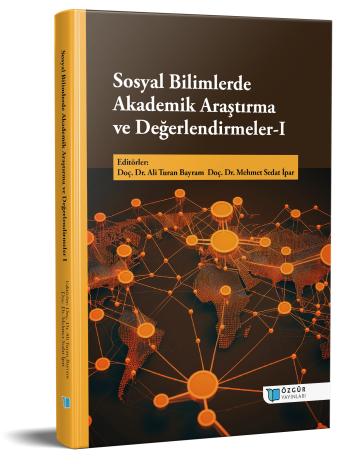
Within the Framework of Public Administration Structural Transformation Türkiye's Communication Strategy Towards the European Union and “Media”
Chapter from the book:
Bayram,
A.
T.
&
İpar,
M.
S.
(eds.)
2023.
Academic Research and Evaluations in Social Sciences - I.
Synopsis
With the aim of carrying out Türkiye's EU candidacy process more effectively, Türkiye's EU Communication Strategy was prepared and announced to the public, the first in 2010 and the others in 2014 and 2019. The Communication Strategy in question has a two-way nature: "Communication Strategy Towards the EU" (ABYİS) and "Communication Strategy Towards Türkiye" (TÜYİS). At the same time, the EU Communication Strategy includes elements such as tools and messages for many target audiences. Due to its wider growth target ABYİS, which is intended to explain Türkiye to EU, and Media from the target audiences of the Communication Strategy due to its ability to reach other target audiences, have a different importance than other elements.
In this respect, in this study, the general messages to be given in the EU communication strategies, the suggested tools for the media, the works carried out by the prominent institutions in media and public diplomacy such as the Prime Ministry General Directorate of Press and Publications, and the Republic of Türkiye Presidential Directorate of Communications, the Prime Ministry Public Diplomacy Coordination Office, the Turkish Radio and Television Corporation, Anadolu Agency, and the Radio and Television Supreme Institution were discussed.. There was also an opportunity to make an analysis within the framework of the structural transformation in public administration regarding the content and implementation of the EU Communication Strategies, which were issued in different periods by the Prime Ministry, the Ministry of EU Affairs and a structure affiliated with the Ministry of Foreign Affairs during the Presidential Government System, in terms of ABYİS and the media as the target audience.
At the end of the study, it was evaluated that the Presidential Government System gave a new direction to the institutionalization of Türkiye's public diplomacy under the umbrella of the Directorate of Communications, and that the National Public Diplomacy Strategy Document and Action Plan, which was implemented with the partnership of all relevant institutions, was an attempt to make Türkiye's EU Communication Strategy more effective. In this context, it has been observed that there has been an increase in the number of professional cooperation and corporate media training compared to previous Communication Strategies, new tools such as the Center for Combating Disinformation have been created, and more media-oriented discourses and statements have begun to be used as tools, using social media. However, it is noteworthy that the messages given include the fight against terrorism, immigration, security and Islamophobia issues.

